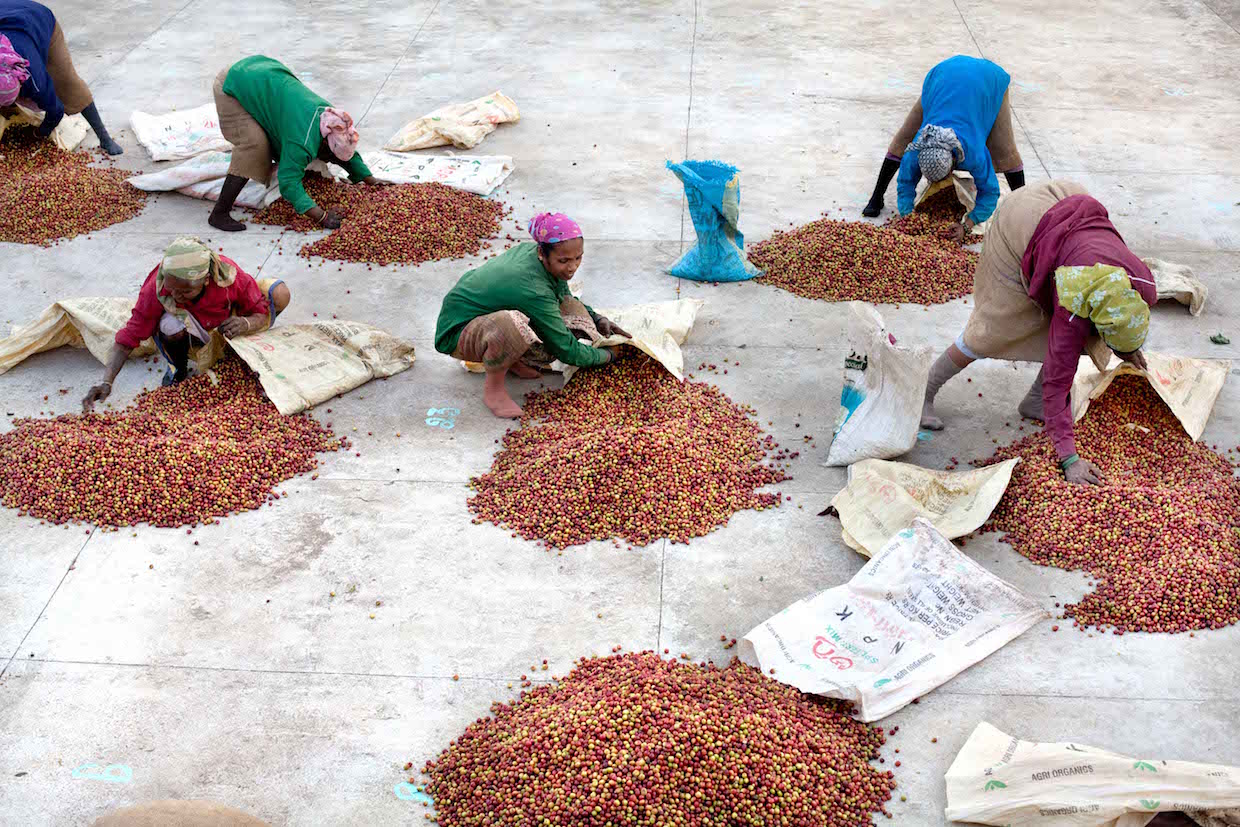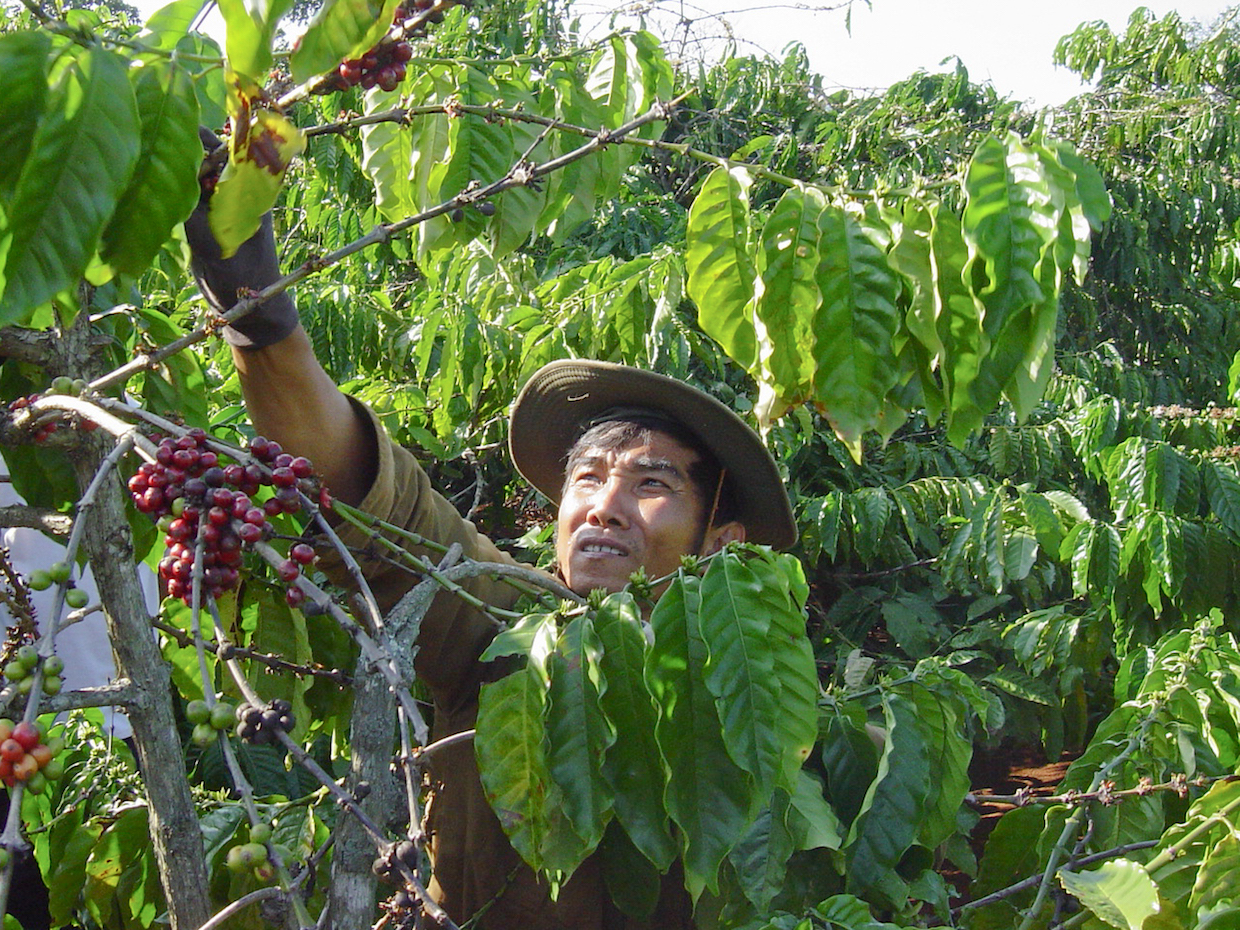Every year, millions of people arrive at coffee farms to provide the labor necessary for coffee to be produced, harvested and later exported to consumers all over the world. Most coffee farms, large and small, use these auxiliary workers at some point of the year, often during the harvest season.
For the crucial role these workers play in coffee’s cultivation and processing, issues related to farm labor are therefore of serious importance to everyone involved in coffee.
Recent regulations in the United States, the United Kingdom and France that take aim at the prevention of forced labor have made this topic even more relevant for the coffee industry. For example, under the Trade Facilitation and Trade Enforcement Act, U.S. importing companies could be required to prove that their coffee was not produced with forced labor, a requirement that poses challenges both logistical and possibly also relating to public perception of their brand depending on their findings. For coffee companies of all sizes, an understanding of labor issues and the factors that indicate a probability of forced labor are more important than ever.
In addition to changes in legislative frameworks, more producing countries and regions are reporting labor shortages at times of harvest. This directly affects both the amount and quality of the coffee to be harvested, as well as the costs of production. If the people who pick coffee are not well trained in identifying quality, or the farmers can’t count on there being enough people at the right time, both the quantity and quality of the harvest will suffer.
Recent reports from groups such as Danwatch, Finnwatch, and Reporter Brasil have highlighted some of the poor working conditions and human rights violations that workers face on coffee farms. Various studies meanwhile have mentioned that consumers do care about human rights issues at the farm or production level.
The most recent National Coffee Association Drinking Trends report shows that “farms that treat workers well” is one of the better motivating claims in influencing consumers to buy a specific coffee. It ranked higher than any third-party certification or other claim related to a coffee’s single-origin status, its support for surrounding communities, suitability in specific brewing methods, or others.
With this issue becoming more relevant for coffee, several companies and organizations have been developing new models to reduce the risk of labor shortages and forced labor, improve working conditions, and create opportunities for more and better coffee. For those of you attending the Global Specialty Coffee Expo (SCA expo) later this month, here are some opportunities to learn more:
Session: “A Collaborative Approach to Improving Farm Worker Well-Being in Colombia”
- Friday April 21, 10:30 – 11:45 a.m.
- Room: TCC Tahoma 2
This session will present a case study from the Aguadas Co-op in Colombia. The co-op is investing in improving living conditions and welfare for the workers that support the smallholder members of that cooperative. Those smallholders have been affected by a changing and scarce labor force, resulting in the lower quantities and quality of coffee at harvest — increasing the cost of production and potential lowering income per bag.
Angela Pelaez from RGC Coffee, the company that is importing this coffee into the U.S., says, “This partnership aims to prove that by improving worker welfare, we can tackle the growing problem of labor shortages in coffee. Industry and farmers need to partner and invest together to address this.”
Session: “Living Wage: An Opportunity For The Coffee Industry To Close the Farmworkers’ Sustainability Gap”
- Sunday April 23, 10:30 – 11:45 a.m.
- Room: TCC Yakima 1
Helping workers to afford a decent standard of living for themselves and their families is the goal of the Global Living Wage Coalition. Elements of a decent standard of living include food, water, housing, education, healthcare, transport, clothing, and provisions for unexpected events. The concept of a living wage for workers has the potential to improve labor availability, reduce the risk of forced labor, and support improvements on productivity and quality.
This panel will discuss how farmers, partnering with coffee buyers, can implement a living wage program that benefits the entire supply chain. Noura Hanna, labor expert at UTZ, says, “The research from the coalition will provide information to industry, farmers and workers about what a living wage is in specific coffee regions. We are using this information already to partner with coffee buyers to understand how we could implement and use living wage to address the major labor challenges that coffee faces.”
Farm Labor Collective Action Networking
Discussions about farm labor at the Expo will happen beyond these panels, too. The Sustainable Coffee Challenge — a movement to make coffee the first completely sustainable agricultural product — involves a coalition of companies, civil society organizations, governments and farmer organizations all working towards this ambitious goal through collective action.
During SCA Expo, the Farm Labor Collective Action Network will meet to begin the discussion of how a united industry can work to eradicate forced labor, and provide workers with a wage from coffee thats enough to live a decent life.
Bambi Semroc from Conservation International says, “It’s great to see such emphasis given to farm labor at SCA this year. Leaf rust, climate change and droughts all affect coffee supply — and when supply is disrupted this affects the livelihoods of millions of farm workers who tend the trees and harvest the coffee. As a sector we must ensure safe working conditions that respect human rights and provide for families.”
The three initiatives above have something important in common: They are all based on partnerships that include different stakeholders, including industry, farmers, workers, and civil society organizations. They are also open to more industry partners. Learn about how you can engage on this issue by joining the farmworker discussions at the SCA expo.
Miguel Zamora
Miguel Zamora is the Head of the Americas Region for UTZ. His work supports coffee farmers and the industry to make sustainable farming the norm. He is a member of the Advisory Councils of the Sustainable Coffee Challenge and the Sustainability Center of the SCA.








Comment